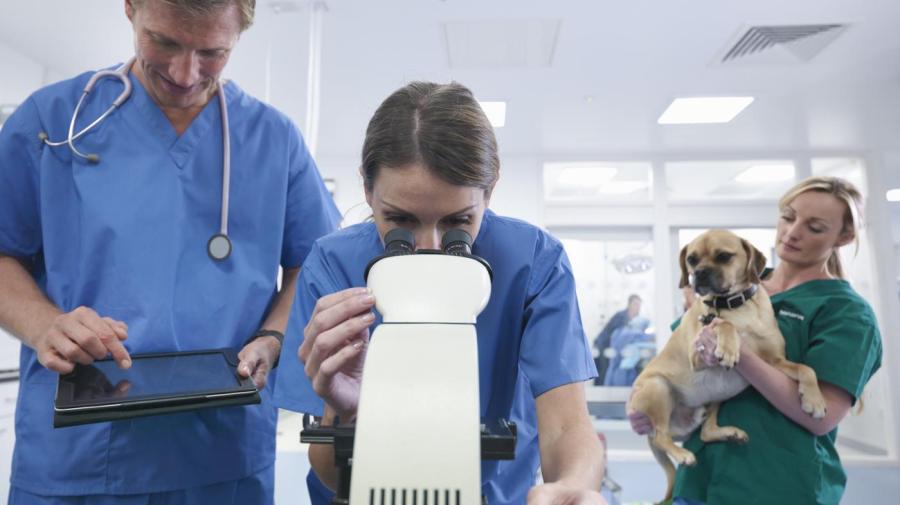How Do Veterinarians Use Chemistry?

The Cornell University College of Veterinary Medicine explains that veterinarians use chemistry to diagnose disease in sick and apparently healthy animals. Additionally, veterinarians use chemistry to prescribe medications and treatments for sick animals and monitor response to the treatment. One of the most common applications for chemistry occurs when veterinarians analyze test results.
Cornell University College of Veterinary Medicine explains that veterinarians use their knowledge of chemistry to interpret many diagnostic tests. For example, veterinarians may investigate the pH of an animal’s blood. By understanding what causes the pH of the animal’s blood to rise or fall, the veterinarian prescribes medications that adjust the animal’s internal chemistry. Another example is liver enzyme tests, which measure the presence of various enzymes, bile salts and ammonia in the patient’s blood. If a problem is evident, the veterinarian prescribes medication to restore proper function.
Veterinarians also investigate criteria such as the amount of dissolved minerals or proteins in the blood. If necessary, the veterinarian prescribes medications to adjust these parameters and alter the patient’s blood chemistry. According to the Cornell University College of Veterinary Medicine, some medical tests occur at intervals. This means that the veterinarian must perform sequential tests to observe how the patient is progressing.





